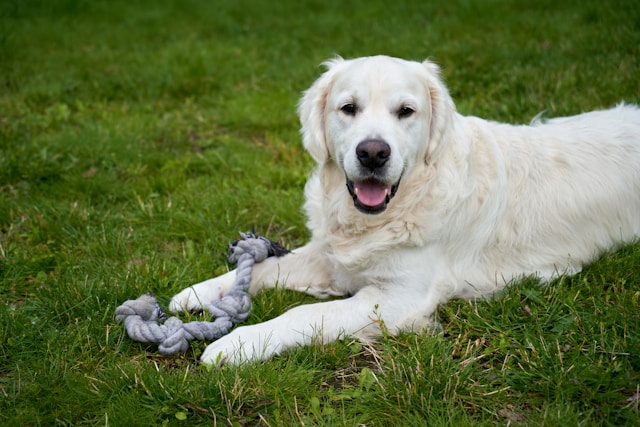Holistic Approaches: Complementary Therapies to Enhance Dog Medicine

As our understanding of canine health evolves, many pet owners and veterinarians are exploring holistic approaches to complement traditional dog medicine. Holistic therapies can provide additional support and enhance the effectiveness of conventional treatments, offering a well-rounded approach to your dog’s well-being. This blog delves into various complementary therapies, their benefits, and how they can work alongside traditional medicine to promote optimal health for your canine companion.
1. Understanding Holistic Medicine for Dogs
Holistic medicine focuses on treating the whole dog rather than just addressing symptoms. It considers physical, emotional, and environmental factors to create a comprehensive health plan. Complementary therapies can include natural remedies, lifestyle changes, and alternative treatments that work synergistically with conventional medicine.
2. Acupuncture: Balancing Energy Flow
What It Is: Acupuncture involves inserting fine needles into specific points on the body to stimulate energy flow, or “Qi,” and promote healing.
Benefits:
- Pain Relief: Effective for managing chronic pain and arthritis.
- Improved Mobility: Can enhance joint function and flexibility.
- Overall Wellness: Supports immune function and reduces stress.
How It Works: Acupuncture points are targeted to release endorphins and other neurotransmitters that help relieve pain and inflammation. It can be particularly beneficial for dogs with musculoskeletal issues, digestive problems, or neurological disorders.
3. Herbal Medicine: Nature’s Remedies
What It Is: Herbal medicine uses plant-based remedies to support various health conditions.
Benefits:
- Natural Anti-Inflammatories: Herbs like turmeric and ginger can help reduce inflammation.
- Digestive Health: Herbs such as slippery elm and chamomile soothe digestive issues.
- Immune Support: Echinacea and astragalus can boost the immune system.
How It Works: Herbal supplements can be given as tinctures, powders, or capsules. It’s crucial to consult with a veterinarian knowledgeable in herbal medicine to ensure the correct dosage and avoid interactions with conventional medications.
4. Homeopathy: Gentle Healing
What It Is: Homeopathy involves using highly diluted substances to trigger the body’s healing response.
Benefits:
- Personalized Treatment: Remedies are tailored to the individual dog’s symptoms and overall health.
- Non-Toxic: Homeopathic remedies are generally safe and well-tolerated.
How It Works: Homeopathic remedies are chosen based on a detailed assessment of the dog’s physical and emotional symptoms. The remedies stimulate the body’s natural healing processes and can be used for chronic conditions or acute ailments.
5. Nutritional Therapy: Food as Medicine
What It Is: Nutritional therapy focuses on providing a balanced diet that supports overall health and addresses specific health issues.
Benefits:
- Improved Health: A diet rich in high-quality proteins, fats, and vitamins can enhance overall health.
- Disease Management: Special diets can help manage conditions like diabetes, kidney disease, and allergies.
How It Works: Tailoring your dog’s diet to include nutrient-dense foods and supplements can support their treatment plan. Consult with a veterinary nutritionist to create a balanced diet that meets your dog’s specific needs.
6. Physical Therapy: Rehabilitation and Recovery
What It Is: Physical therapy involves exercises and techniques to improve mobility and strength.
Benefits:
- Enhanced Recovery: Helps dogs recover from surgery or injury more quickly.
- Pain Management: Can reduce pain and improve quality of life for dogs with arthritis or other chronic conditions.
How It Works: Physical therapy may include exercises, massage, hydrotherapy, and modalities like laser therapy. A certified canine rehabilitation therapist can create a personalized plan to address your dog’s needs.
7. Chiropractic Care: Spinal Health
What It Is: Chiropractic care focuses on adjusting the spine to improve nervous system function and overall health.
Benefits:
- Pain Relief: Can alleviate pain and discomfort caused by spinal misalignments.
- Improved Mobility: Enhances range of motion and reduces stiffness.
How It Works: Chiropractic adjustments are performed by a trained veterinarian or chiropractor to correct spinal misalignments and improve overall function. This therapy can be particularly useful for dogs with back pain or mobility issues.
8. Massage Therapy: Relaxation and Healing
What It Is: Massage therapy uses manual techniques to relax muscles and improve circulation.
Benefits:
- Muscle Relaxation: Helps relieve muscle tension and stiffness.
- Improved Circulation: Enhances blood flow and promotes healing.
How It Works: Massage techniques include stroking, kneading, and tapping. Regular sessions can help manage stress, reduce pain, and support recovery from injury or surgery.
9. Aromatherapy: Essential Oils for Dogs
What It Is: Aromatherapy involves using essential oils to influence health and well-being.
Benefits:
- Calming Effects: Certain oils like lavender and chamomile can reduce anxiety and stress.
- Skin Health: Oils like coconut and tea tree can support skin health and healing.
How It Works: Essential oils can be used in diffusers, topical applications, or incorporated into grooming products. It’s essential to use dog-safe oils and consult with a veterinarian to avoid any adverse reactions.
10. Integrating Holistic Therapies with Traditional Medicine
Collaboration: Holistic therapies should complement, not replace, traditional medical treatments. Always inform your veterinarian about any complementary therapies you’re using to avoid potential interactions or contraindications.
Monitoring: Regular check-ups are crucial to assess the effectiveness of both traditional and holistic treatments. Adjustments may be needed based on your dog’s response to therapy.
Conclusion
Holistic approaches and complementary therapies can significantly enhance your dog’s health and well-being when used alongside traditional medicine. By integrating therapies such as acupuncture, herbal medicine, and nutritional support, you can provide a more comprehensive and balanced treatment plan. Always consult with a knowledgeable veterinarian to tailor these approaches to your dog’s specific needs and ensure a safe and effective integration of holistic therapies.



